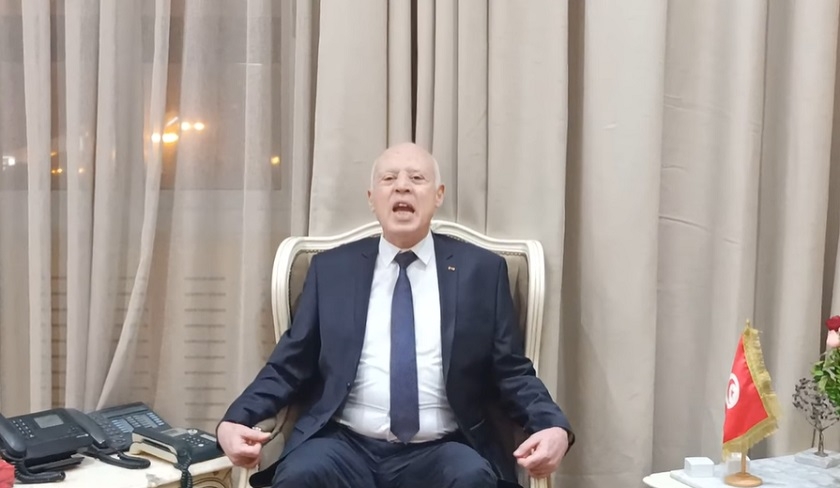Tunisian President Kaïs Saïed has announced the dissolution of the country's highest judicial authority, the Superior Council of the Judiciary (CSM). According to the Head of State, the CSM would be "biased" and "corrupt".
It is a pockmarked machine that Kaïs Saïed has put a stop to. In Tunisia, after several weeks of tension between the Superior Council of the Judiciary (CSM) and President Kaïs Saïed, the latter announced the – expected – dissolution of the council.
The Tunisian head of state and the highest judicial authority had been at odds since the CSM refused to validate Kaïs Saïed's criminal reconciliation project. An internal document, which repeated the legal errors contained in the draft decree, had then leaked.
Kaïs Saïed had then, at the beginning of January, published a decree ending the bonuses and privileges granted to members of the CSM. A way for the Tunisian head of state to put pressure on the magistrates of the council.
Finally, it was during a visit to the Ministry of the Interior that Kaïs Saïed declared his intention to dissolve the CSM. “These judges were too malleable on several cases. The Superior Council of the Judiciary now belongs to history, yet I had warned them on several occasions,” said Kaïs Saïed.
In other words, the Tunisian president also accuses the CSM of being biased and its judges of being corrupt. Kaïs Saïed called on his supporters to demonstrate on the anniversary of the assassination of the leader of the Tunisian left Chokri Belaïd, killed on February 6, 2013. A murder that has still not been elucidated. An error that Kaïs Saïed also imputes to the judiciary.
A symbolic and legal decision
The symbolism of this radical act by the Tunisian president therefore escapes no one. For a large part of Tunisians, the secret of the murder of Chokri Belaïd, still inextricable, has greatly weakened the image of the judiciary in the country for years.
For his part, Kaïs Saïed is politically at war with the same political current against which Chokri Belaïd campaigned during his lifetime, the Tunisian right with, at its head, the Islamist party Ennahdha.
Ennahdha has been in power in Tunisia since the fall of former dictator Ben Ali, and until Kaïs Saïed suspended the Assembly of People's Representatives (ARP), Ennahdha's center of power, where the party was at the head of the majority, and whose leader Rached Ghannouchi was president.
Kaïs Saïed had also dismissed the head of government and suspended the Constitution, bringing together executive and legislative power in his hands. But with regard to the judiciary, if the president had announced to become the head of the Public Ministry, he has since appointed Leïla Jaffel Minister of Justice. According to the “mini-constitution”—presidential decree 117 concerning the provisional organization of powers—the minister has therefore occupied, since her appointment, the function of head of the public prosecutor's office.
Kaïs Saïed can count on popular support
Be that as it may, if the detractors of Kaïs Saïed accuse the president of having dissolved the CSM without having the right to do so, the specialists in constitutional law temper things. Indeed, when Kaïs Saïed decreed his “mini-constitution” in September, he had also suspended the old Constitution, with the exception of the first two chapters. This means that Chapter 5, organizing the jurisdictional power and, in particular, the Superior Council of the Judiciary, has been de facto suspended since last September.
By opposing President Kaïs Saïed, did the CSM therefore go to war without a shield? Since July 25, the day of Kaïs Saïed's "constitutional coup d'etat", as the opposition likes to call him, the Tunisian president is shaking up the country's politics. Nevertheless, Kaïs Saïed has shown a great ability to both handle constitutional law and arrogate significant popular support.
Indeed, this dissolution of the CSM of Kaïs Saïed shows, once again, that the Tunisian president always knows how to put the forms to legitimize his political decisions. But, by taking such a decision on the eve of a symbolic day for the populations - the anniversary of Belaïd's assassination, which alone represents the failure of the judiciary - Kaïs Saïed is ensuring yet another plebiscite for a fundamental decision that will have repercussions in the coming years.
